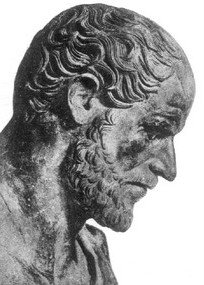
Aristotle’s “Organon” is a collection of works that serves as a foundational text for the study of logic and philosophical inquiry. The work is also known as “The Complete Aristotle”. Comprising six works, the Organon covers a wide range of topics related to logic, including the principles of reasoning, the nature of language and communication, and the methods of scientific inquiry. Aristotle’s emphasis on the importance of rigorous reasoning and observation laid the groundwork for modern scientific inquiry and has had a profound influence on Western philosophy and intellectual history. In this article, we will explore the six works that make up the Organon and examine their contributions to the field of philosophy.
The Categories
The Categories is the first work in the Organon and deals with the nature of language and the ways in which we use language to represent the world around us. Aristotle argues that all things can be classified into ten categories, including substance, quantity, quality, relation, and action. The Categories lays the groundwork for later works in the Organon and establishes the importance of classifying and categorizing objects in order to understand their properties and relationships.
On Interpretation
On Interpretation, the second work in the Organon, focuses on the nature of language and the way in which we use language to make truth claims about the world. Aristotle argues that all statements can be either true or false, and that we can use language to make predictions and draw inferences about the world. He also discusses the concept of modality, or the degree of certainty that we can assign to a particular statement.
Prior Analytics
Prior Analytics is the third work in the Organon and deals with the principles of deductive reasoning. Aristotle argues that all deductive arguments can be reduced to syllogisms, or logical structures consisting of a major premise, a minor premise, and a conclusion. He also discusses the concept of validity and the ways in which we can evaluate the strength of an argument.
Posterior Analytics
Analytics, the fourth work in the Organon, focuses on the nature of scientific inquiry and the ways in which we can use reason to gain knowledge about the world. Aristotle argues that scientific knowledge is based on a combination of observation and deduction, and that we can use our observations to formulate general principles that we can then use to make predictions about the world.
Topics in the Organon
Topics is the fifth work in the Organon and deals with the principles of inductive reasoning. Aristotle argues that inductive reasoning involves moving from specific examples to general principles, and that we can use induction to generate hypotheses and theories about the world. He also discusses the importance of dialectic, or the art of argumentation, in developing sound theories and defending them against objections.
Sophistical Refutations
Sophistical Refutations is the final work in the Organon and deals with the principles of argumentation and persuasion. Aristotle argues that we can use logical fallacies, or errors in reasoning, to deceive others and that we need to be able to identify these fallacies in order to engage in effective argumentation.
In conclusion, the Organon is a collection of works that has had a profound impact on the field of philosophy and on Western intellectual history. By emphasizing the importance of rigorous reasoning and observation, Aristotle laid the groundwork for modern scientific inquiry and established the principles of deductive and inductive reasoning that are still used today. The Organon remains an essential text for anyone interested in the study of logic and philosophical inquiry.
Download Organon here (7 MB/3.354 pages):
 Organon
Organon
You can buy the print version here: Link
Organon – The Complete Works of Aristotle – an introduction

